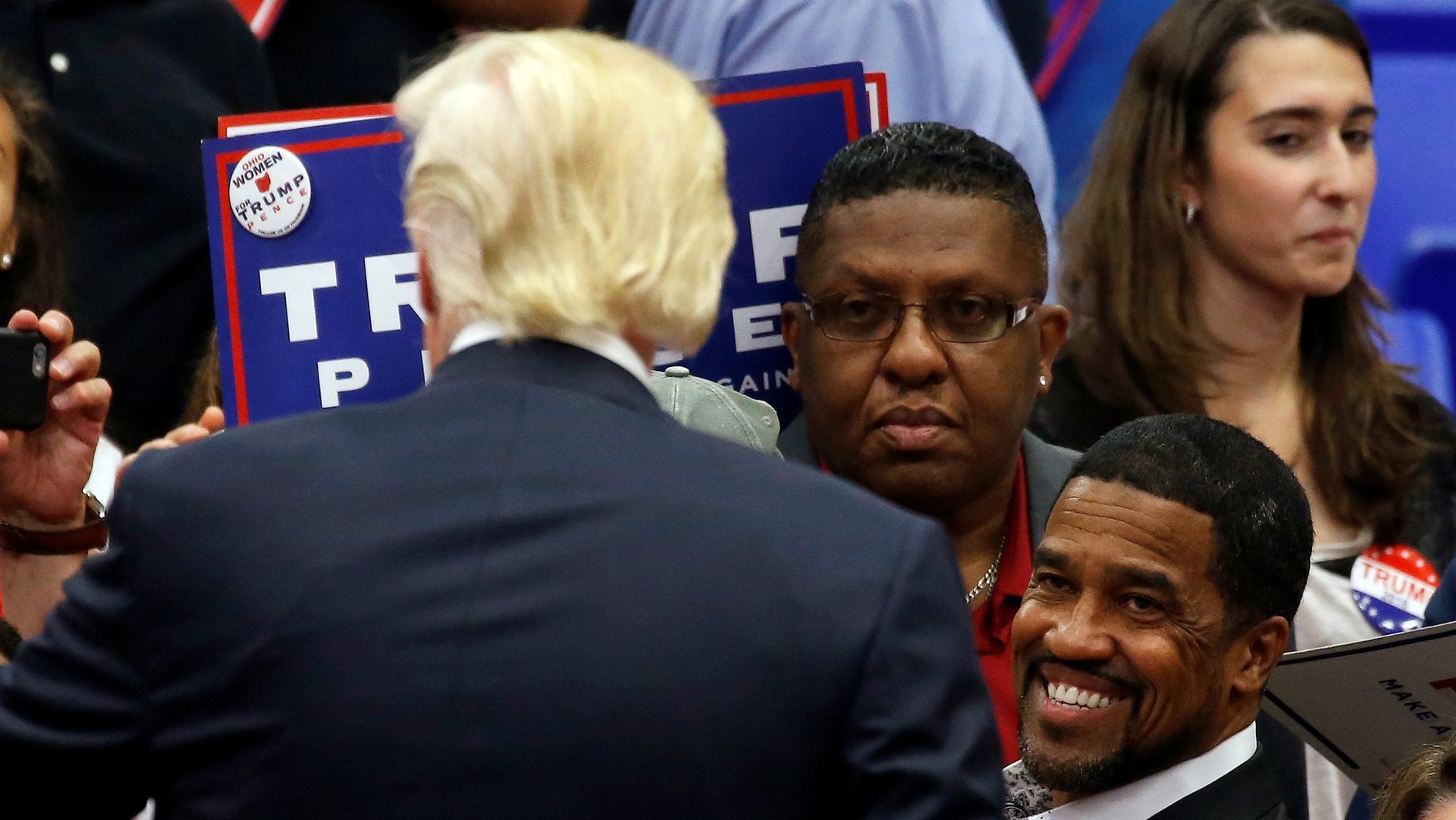Trump says he’ll make inner cities safer for minorities by putting “tougher” cops in charge
In recent days, Donald Trump has been trying to court minority voters, among whom he has historically low support. But, as is his nature, he has a curious way of going about it.


In recent days, Donald Trump has been trying to court minority voters, among whom he has historically low support. But, as is his nature, he has a curious way of going about it.
Pressed by Fox News Host Bill O’Reilly Monday night (Aug. 22), on his new message of curbing violence in inner cities, whose victims are primarily minorities, the candidate offered his idea of a solution. “I know police in Chicago,” Trump said. “If they were given the authority to do it, they would get it done.”
When asked how he and the police would do this specifically, he answered: “By being very much tougher than they are right now” and that “they are right now not tough.” He said he spoke to an unnamed top police leader in Chicago, whom he asked if he could stop the violence if he’d be put in charge. “‘Do you think you could stop it?’ He said, ‘Mr. Trump, I would be able to stop it in one week.’ And I believed him 100 percent.'”
“How do you stop the bad guys from attacking them?” O’Reilly asked, referring to attacks on police. “By giving them back your spirit and by allowing them to go and counterattack,” Trump said.
Both crime and gun violence—which is indeed a huge problem in US cities—are overall on the decline. But these facts do not fit in with Donald Trump’s narrative of a country out of control that needs a savior who will restore law and order.
“You can go to war zones in countries that we are fighting and it is safer than living in some of our inner cities that are run by the Democrats,” Trump said in a speech in Ohio on Monday. He pledged that if he is elected president, “we’ll get rid of the crime. You’ll be able to walk down the street without getting shot. Now, you walk down the street, you get shot.” Last week in remarks in Milwaukee, Trump said: “Our job is to make life more comfortable for the African-American parent who wants their kids to be able to safely—safely—walk the streets.”
Just to reiterate: pressed on what was his solution to curbing violence that touches primarily minority communities, which was the heart of his appeal to these very communities, Trump said he would make police, who are three times more likely to kill a black person than a white person, “tougher.”
This dissonance can be easily explained by whom exactly was Trump’s intended audience: not African-Americans, whose support for him in polling is less than the margin of error, but whites. As Gwynn Guilford pointed out last week at Quartz, in his supposed appeal to black voters, Trump implies that they are “too naive and backward to discern their own interests.”